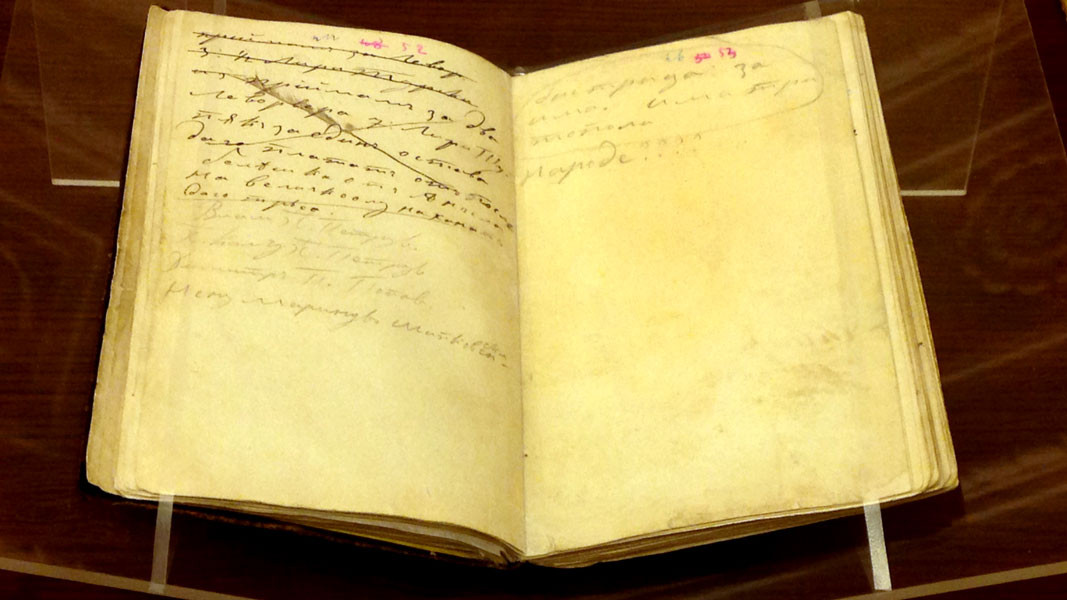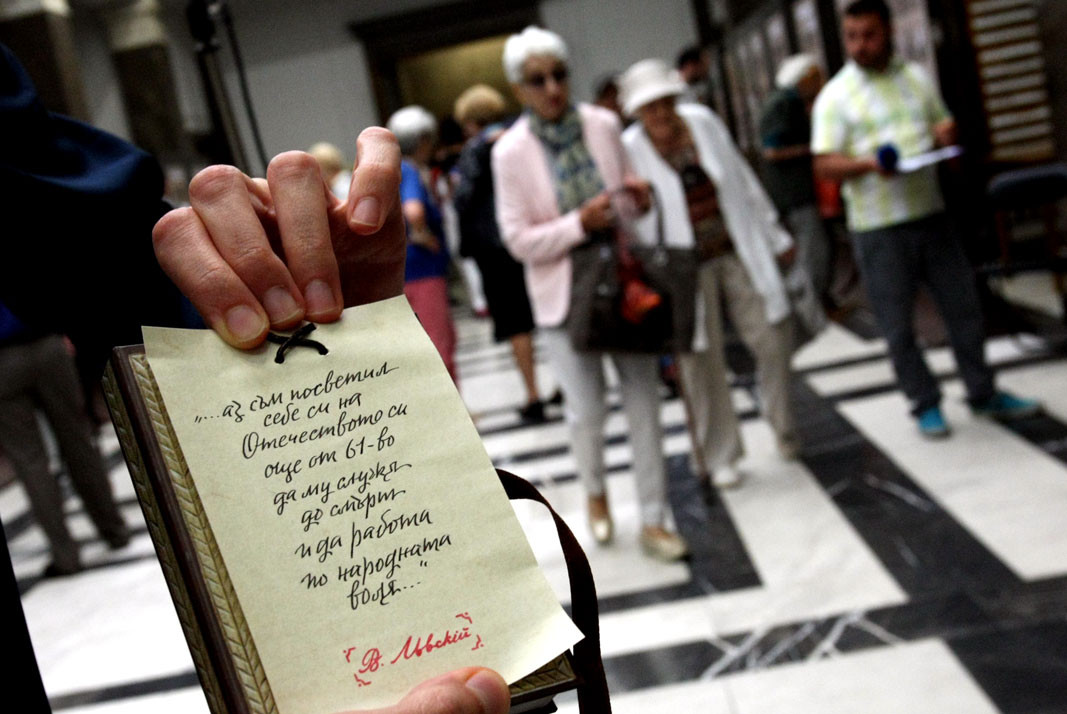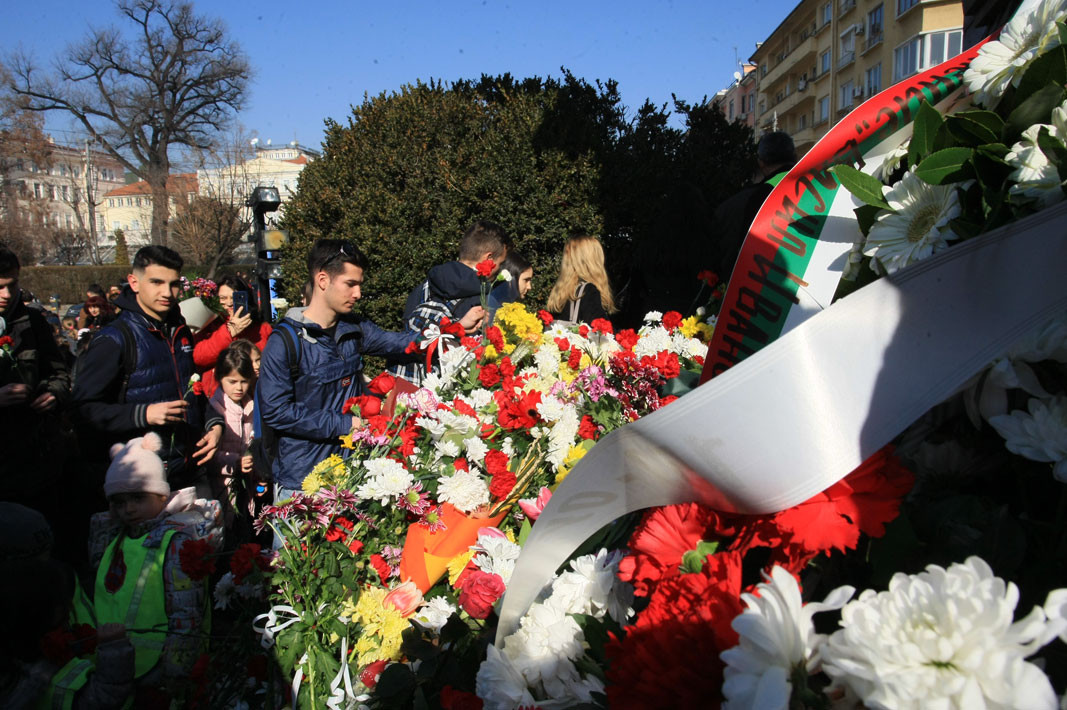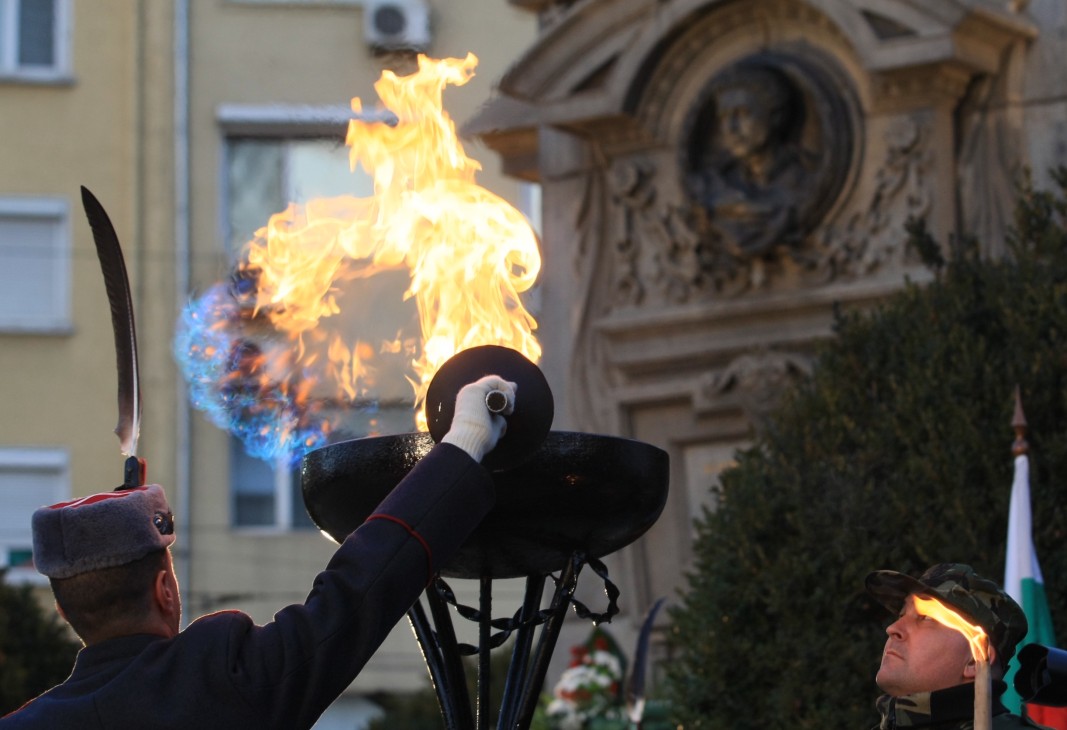Our history is not going to pin my merits on someone else, says the Apostle of Bulgarian freedom Vasil Levski. Today, 147 years after his heroic death these words ring just as true as they did then and Vasil Levski has long ago taken a place of honour in the pantheon of Bulgarian heroes and in the hearts of Bulgarians.
If we take a look at his legacy we can well describe it as our national bible, says Vasil Vasilev, chairman of the Vasil Levski national committee in an interview for Radio Bulgaria.
In this legacy – elements of letters and notes written by him – we see an intellect extraordinarily advanced for the age he lived in. He was able to see everything that needed to be done in Bulgaria and how it can be achieved. Today too we should look to Levski’s legacy because it gives us a solid structure we can stand on to begin the revival and building of the country according to modern standards.
Looking at Levski’s correspondence we discern the path that leads to revival – in 1871 he wrote to a wealthy Bulgarian living in Wallachia: “It all comes down to our joint effort”, and in 1872 to Luben Karavelov: “Brotherhood with one and all, whatever their faith and nationality.”

Every year that has passed since the death of Vasil Levski has brought to light new facts connected with the way he was captured or the role he played in the existence of the revolutionary committees in Bulgaria. For example the idea that the Ottoman authorities were completely oblivious to Levski and his activities before they captured him has proved untrue. In the words of Dora Chausheva from the Vasil Levski national museum in Karlovo his role in the committee organization was known to the Ottomans even before the robbery of the Turkish treasury in Arabakonak pass (now Botevgrad pass) on 22 September, 1872, committed so as to purchase weapons and provisions for the committees. The sum collected from taxes that the coffer contained amounted to 1,250 Turkish Lira.

The myth connected with the exact date of the death of Vasil Levski following his trial has not been debunked. The date on which he was hanged is still the subject of much public discussion and debate among academics.
The discrepancy concerning the dates is due to a miscalculation as we passed over from the Gregorian to the Julian calendar, says Vasil Vasilev. Historians say that the real date is 18 February, but society has embraced the date 19 February and I think that is how it should remain. Historical truth is one thing but people are accustomed to the tradition of marking the date 19 February.

But there are many other events organized on the 18th – conferences, meetings. There are places, like Karlovo, the town where Vasil Levski was born, where events honouring him are organized on both days.”
Born on 18 July, 1837, Vasil Ivanov Kunchev knew early on that his pursuit of freedom for Bulgaria would bring about his death and sacrificed his life readily. He himself said he had dedicated himself to his country in the year of our Lord 1861, to serve it to the death and work for the will of the people. Levski believed that one day “all people in Bulgaria shall live under pure and sacred laws, as is God’s will that men shall live. For the Turks, for the Jews etc., whoever they may be, it shall all be the same as long as they recognize the laws as do Bulgarians. That is how it shall be in our Bulgaria.”

Photos: BGNES
They call Nikopol “the town of ages” because its history goes back thousands of years. It was founded as a settlement in the year 169 during the reign of Roman Emperor Marcus Aurelius. In 629, theByzantine Emperor renamed the town to Nicopolis, meaning..
There are rumours and speculations that some forgeries, so good that they are not inferior to the originals, could be found among the exhibits in the museums, but at the moment a whole series of forgeries can be seen at an exhibition..
A unique statue from the Roman period of Odessos, preliminarily dated to the late 2nd to the first half of the 3rd century, has been discovered during excavation works near the train station in Varna, said archaeologists from the Varna Regional..
The Feast of the Epiphany - the entry of the Theotokos into the Temple - is one of the oldest and most revered feasts in the Orthodox world. It was..
On November 22 and 23, the Bulgarian Orthodox Church will solemnly celebrate the 100th anniversary of the consecration of the Patriarchal Cathedral "St...

+359 2 9336 661
